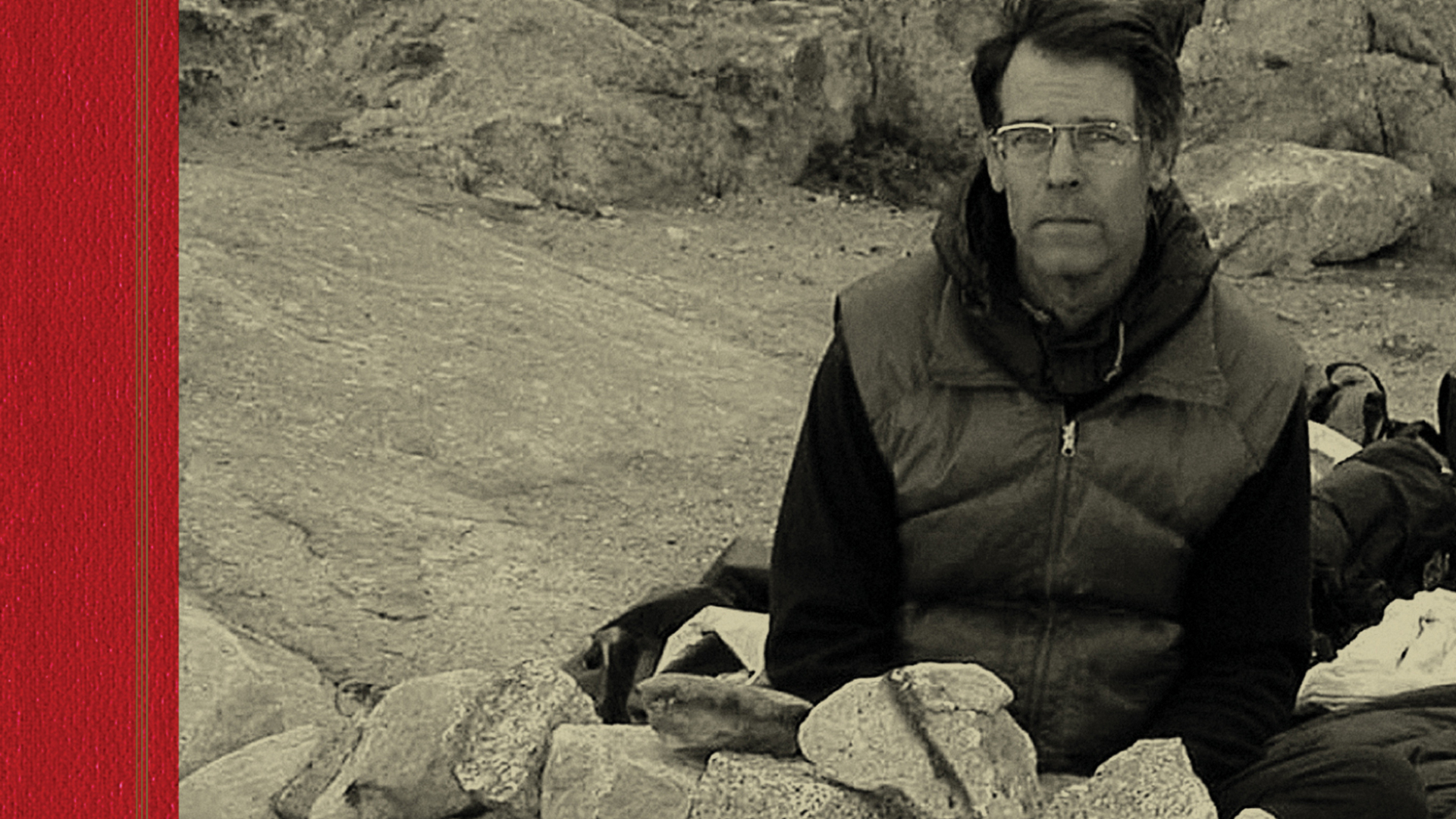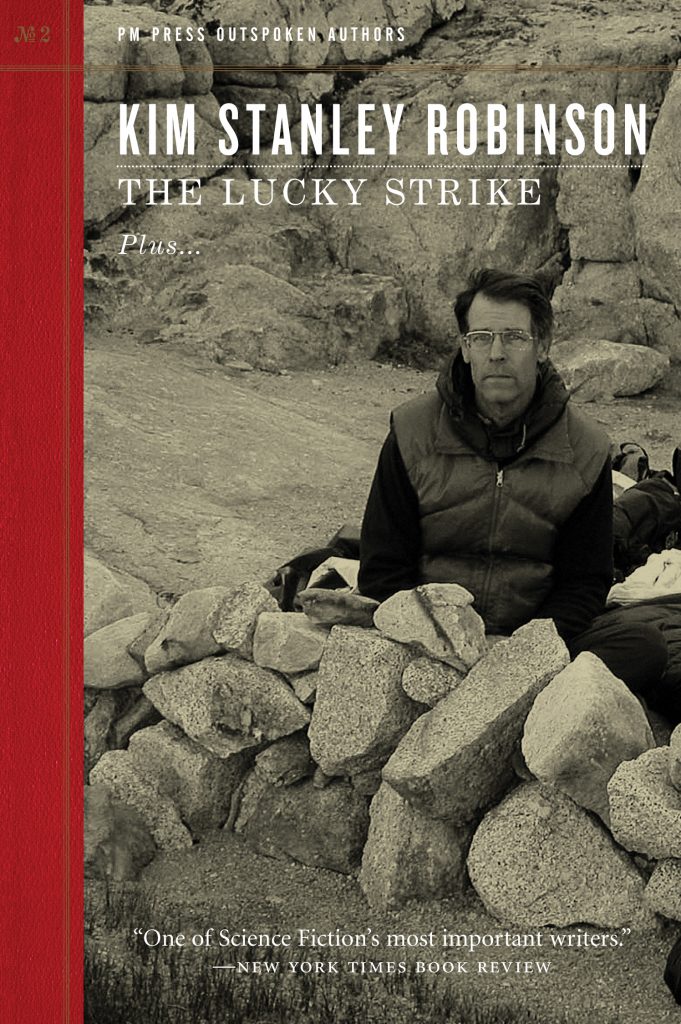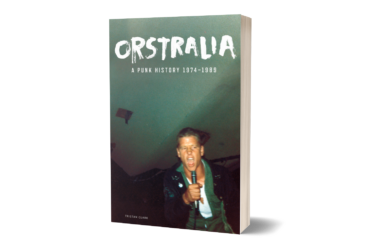By Terry Bisson
Shareable: Life & Art
Kim Stanley Robinson is one of America’s most important science fiction authors—and an underappreciated utopian visionary.
He grew up in Southern California ‘s Orange County (a Republican
stronghold credited with launching the “Reagan Revolution”) and earned a
PhD in literature from the University of California, San Diego, in
1982. Starting with the publication of The Wild Shore in
1984, Robinson embarked upon creating an ambitious body of work that
tackles themes of ecological sustainability, economic and social
justice, and the relationships between science, politics, and values—and
in the process, he has won every major science fiction award. Robinson
is most famous for the Mars trilogy, published from 1992 to ’96, which imagines wonderfully flawed human colonists building a terraformed utopia on the red planet.
Next month, Spectra will publish Robinson’s new novel, Galileo’s Dream,
which envisions the founder of modern science as a bridge between
Renaissance Italy and a distant future on the Jovian moons. Last month,
PM Press published a special edition of Robinson’s classic novelette The Lucky Strike. In the following excerpt from that book, award-winning science fiction author Terry Bisson (editor of PM Press’s Outspoken Authors series, of which The Lucky Strike
is part) interviews Robinson about real and imaginary shareable
communities, global warming, capitalism, and what science fiction can
teach us about living in the future.—Jeremy Adam Smith, Editor of Shareable.net
Terry
Bisson: Your first big trilogy was the Orange County series. Did you
feel you owed that to your birthplace or was it because Orange County,
California, somehow concentrates all the tendencies good and bad in
modern America?
Kim Stanley Robinson: That trilogy is actually called “Three Californias,”
as the handsome Tor trade paperbacks say. I guess it was a little of
both. I wanted to ground some of my science fiction in my actual home
town, and I also felt like I was the beneficiary of a lucky coincidence,
in that my home town seemed to me to represent some kind of end case
for America, some kind of future already here for the rest of the
country to witness and hopefully avoid following. I’m not sure that was a
true perception, but it had to do with the westward movement in
American history, and the fact that when people reached the Pacific
there was no where else to go, so the leading edge of malcontents and
dreamers was stuck there and had to make something of it. Los Angeles is
the big exemplar of how that can go wrong, San Francisco how it can go
right, and Orange County is like the purest expression of LA. And in my
time it was so beautiful, then it was so destroyed, and it was so
drugged out; it seemed a good spot to talk about America, so I used it.
It still feels like a lucky thing, and I think it was fundamental to me
becoming a science fiction writer in the first place. When I ran into
science fiction at age eighteen, I said, Oh I recognize this, this is home, this is Orange County.
TB: My favorite of that series is Pacific Edge, the utopia of the series. What’s yours? Are there any particular problems in writing a utopia?
KSR: My favorite is The Gold Coast, for personal reasons, but I think Pacific Edge
is more important to us now. Anyone can do a dystopia these days just
by making a collage of newspaper headlines, but utopias are hard, and
important, because we need to imagine what it might be like if we did
things well enough to say to our kids, we did our best, this is about as
good as it was when it was handed to us, take care of it and do better.
Some kind of narrative vision of what we’re trying for as a
civilization.
It’s a slim tradition since [Sir Thomas] More invented the word, but a very interesting one, and at certain points important: the Bellamy clubs after Edward Bellamy’s Looking Backward had a big impact on the Progressive movement in American politics, and H.G. Wells’s stubborn persistence in writing utopias
over about fifty years (not his big sellers) conveyed the vision that
got turned into the postwar order of social security and some kind of
government-by-meritocracy.
So utopias have had effects in the real world. More recently I think Ecotopia
by [Ernest] Callenbach had a big impact on how the hippie generation
tried to live in the years after, building families and communities.
There are a lot of problems in writing utopias, but they can be opportunities.
The usual objection—that they must be boring—are often political
attacks, or ignorant repeating of a line, or another way of saying “No
expository lumps please, it has to be about me.” The political attacks
are interesting to parse. “Utopia would be boring because there would be
no conflicts, history would stop, there would be no great art, no
drama, no magnificence.” This is always said by white people with a full
belly. My feeling is that if they were hungry and sick and living in a
cardboard shack they would be more willing to give utopia a try.
And if we did achieve a just and sustainable world civilization, I’m
confident there would still be enough drama, as I tried to show in Pacific Edge.
There would still be love lost, there would still be death. That would
be enough. The horribleness of unnecessary tragedy may be lessened and
the people who like that kind of thing would have to deal with a
reduction in their supply of drama.
So, the writing of utopia
comes down to figuring out ways of talking about just these issues in an
interesting way; how tenuous it would be, how fragile, how much a
tightrope walk and a work in progress. That along with the usual science
fiction problem of handling exposition. It could be done, and I wish it
were being done more often.
TB: Your recent “Global Warming” trilogy (40 Signs of Rain; 50 Degrees Below; 60 Days and Counting)
was about global warming—which leads to a deep freeze! What do you
think of Obama’s “green” agenda? Is it headed in the right directions?
KSR:
Climate change will mostly be warming, but that will add such energy to
the world system that the turbulence will lead to areas of greater cold
in winter, as well as more severe storms, etc. So I followed a scenario
that describes the “abrupt climate change” that the scientists have
found in the historical record, that results when the Gulf Stream is
shut down at its north end by too much fresh water flooding the far
north Atlantic.
That could happen with Greenland melting,
though now they think it is lower probability than when I wrote (oh
well). I like Obama’s green agenda and hope his whole team and everyone
jumps on board and pushes it as hard as possible.
One thing
happening is that the Republican Party in the USA has decided to fight
the idea of climate change (polls and studies show the shift over the
first decade of this century, in terms of the leadership turning against
it and the rank and file following), which is like the Catholic Church
denying the Earth went around the sun in Galileo’s time; a big mistake
they are going to crawl away from later and pretend never happened. And
here the damage could be worse, because we need to act now.
What’s been set up and is playing out now is a huge world historical
battle between science and capitalism. Science is insisting more
emphatically every day that this is a real and present danger.
Capitalism is saying it isn’t, because if it were true it would mean
more government control of economies, more social justice (as a climate
stabilization technique) and so on. These are the two big players in our
civilization, so I say, be aware, watch the heavyweights go at it, and
back science every chance you get. I speak to all fellow leftists around
the world: science is now a leftism, and thank God; but capitalism is
very, very strong. So it’s a dangerous moment. People who like their
history dramatic and non-utopian should be pleased.
TB: Your latest work, to be published next month, is about Galileo. Or about the relationship between science and politics. Or is it ambition and religion? Or work and age?
KSR:
A bit of all those things, but mostly I was thinking science and
history; what science is, how it has affected history, how it could in
the future. And also about Galileo’s actual work, which is ever so
interesting. He was a great character.
TB: You gave one of the Google talks. Was that cool or what? What did you tell them?
KSR:
It was a lot of fun. The Google people were great, and their free
cafeteria is out of this world. They put the talk online so you can find it on YouTube.
It was my first Power Point talk ever, so that was a bit clunky, but
fun. It was configured as a talk to the Googlers, telling Google what it
could do to fight climate change and enact utopia. I’m not sure the
folks at Google.org (their charitable/activist foundation) were
listening, but it was worth a try, and basically a way to frame my usual
talk about what we all should do. Mostly I say, go outdoors and sit and
talk to a friend: this is our primate utopia and very easy on the
planet.
TB: I understand that you live in a utopian community [called Village Homes, pictured above and below; images by Michael Corbett]. How does that work? Is it pre- or post-modern?
KSR: A
little of both, I guess. The model is an English village really; about
eighty acres, a lot of it owned in common, so there is a “commons” and
no fences, except around little courtyards. There are a lot of vegetable
gardens, and the landscaping is edible, meaning lots of fruits, grapes
and nuts.
It’s
really just a tweaking of suburban design, but a really good one.
Energy mattered to the designers and we burn about 40 percent the energy
of an ordinary suburban neighborhood of the same size. That’s still a
lot, but it’s an improvement. Village Homes was built in 1980 or so; if
every suburb since then had followed its lead, we would have much less
craziness in America, because the standard suburb is bad for sanity. But
that didn’t happen, so for the 1,000 people who live here it’s a kind
of pocket utopia. Not the solution, but a nice place to live right now,
and it could suggest aspects of a long-term solution. It’s been a real
blessing to live here.
TB: I hear you and [the novelist] Karen Joy Fowler like to write together in cafes. What’s that about?
KSR: I
wrote in cafes for many years; I liked seeing the faces, which often
became characters’ faces, and I liked hearing the voices around me, I
think it helped with dialogue, and made my writing even more a matter of
channeling a community. Fowler joined me in this at several cafes
downtown, all of which died, we hope not from our presence, although we
may have killed three.
It was good to meet with someone going
through the same issues, it was a kind of solidarity and also a bit of
policing, in that there was someone to meet at a certain time, who would
then be watching in a way. It was a great addition to a friendship. But
now Karen has moved, and on my own I’m finding I like my courtyard
better than any of the cafes left in town.
I thought I was
getting tired of writing, before, but now I realize I was only tired of
spending so much time indoors sitting around. When it’s outdoors it
feels completely different.
TB:
You are firmly ensconced in the science fiction genre. Many writers
regard that as a trap, and others as an opportunity. How do you see it?
Is working in a field with a developed, opinionated and rambunctious
“fandom” a blessing or a curse?
KSR: It’s
the hometown. It’s a floor and a ceiling, in some respects. I love the
genre and the community, but want readers who don’t usually think of
themselves as SF readers to give me a try, as they have in the past for
Bradbury, Asimov, Frank Herbert, Ursula Le Guin, and so on.
These days there seems to be a lot of permeability. [Michael] Chabon’s The Yiddish Policeman’s Union was a great SF novel, an alternative history, and it was widely read and enjoyed by people. Maybe Philip K. Dick’s takeover of the movies helped break down part of the barriers.
Anyway, there is no reason to pretend it’s a ghetto and we are
oppressed artists that the world won’t give a break. In the 1950s that
was true and drove many writers mad. Now to hold that position (which
some do) would be only a confession that you’d rather be a big fish in a
little pond than swim in the big ocean. I like the ocean, but I love SF
too. And really, to have a literary community as a kind of feedback amp
on stage, loudly talking back to you and ready to talk at any moment—
any writer is lucky to have that. The solitude and alienation of many
writers from their audiences strikes me as sad. It’s solitary enough as
it is, in the daily work.
TB:
Science fiction writers are always complaining about the state of
publishing. What do you think would be the proper role of science
fiction in a proper publishing world? Would there be genres or
categories at all?
KSR: I
don’t know! That’s a real alternative history. If there were no genres
or categories, people might be more open to trying new things. That
would be good. I’d love to try it. But it’s not the world we have. Going
forward from now, I guess I think every science fiction section in
every bookstore should have a sign saying “Science Fiction—You Live
Here, Why Not Read About It?” or “Science Fiction, the Most Real Part of
This Store” or something like that. Something to remind people of
reality, which is that we are all stuck in a big SF novel now, and
there’s no escape; might as well accept it and dive in.







